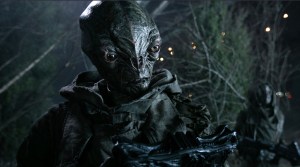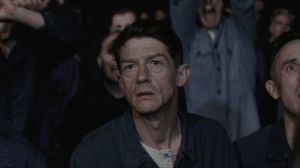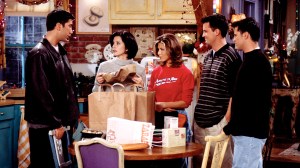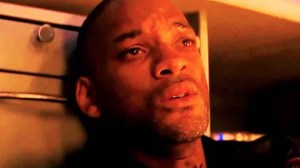Hyrule Warriors: Age of Calamity is coming this fall, but The Legend of Zelda: Breath of the Wild didn’t need a prequel. The story (or lack thereof) has been a hotly debated topic ever since the game hit store shelves in 2017. BoTW is a game about the fractures of time and how reassembling those fissures might not give you a cohesive picture. Even if you take the admission that the game serves as a wild departure from the series’ established tropes and mechanics, it can be hard for some players to grapple with the lack of the linear story. Well, having the story basically shoved into cutscenes that you have to go find and not focusing on the day of the Great Calamity is a sound decision.
Videos by ComicBook.com
All of Hyrule’s champions fell that day and Link is the lone survivor along with Zelda. This entire quest is to go save her and rid the land of Ganon’s malevolence. Healing the damage the evil cloud has sprayed across the land and making things whole once again. But, from the moment you meet King Rhoam, it’s clear that there are some bells that aren’t going to be un-rung. But the true moment that tips BoTW’s hand comes when you march toward the Temple of Time. Instead of being greeted by the familiar tune, you are confronted by some more of the ambient sounds of the countryside and some sparse notes that become the Song of Time until the ghost makes himself known.
Nintendo legend Satoru Iwata addressed that choice in the booklet for the soundtrack back in 2017 (credit: Nintendo Everything for the translation):
“As for other songs from the series, we were surprised how excited fans got when they realized they could speed up the ‘Temple of Time’ theme to hear it differently. More than trying to hide the theme, I was really just trying to find a way to include it in the game,” Iwata began. “Because the temple has fallen to ruin, it was important to me that the song represent some of that, and also that the theme not be too prominent and remain sparse. I would have been satisfied just for people to realist it was the same song, but I am really happy with the positive response.”
Players often characterize BoTW as trying to keep players off-balance in the early going. But, this actually hammers that point home. There are no comforting sounds, no returning characters that will guide you through like the King of Red Lions in Wind Waker. Just a small speech and the wind at your back.
The champions of Hyrule that Link used to know are apparitions themselves locked away in the scattered Divine Beasts meant to protect the land. Ganon has taken this would be story of triumph and twisted it to his own ends. Revali, Mipha, Daruk, and Urbosa are all memories for you when they show up later in the game. Cutscenes do just enough to give you the shape. But the opaque sketches of their characters give Link purpose as he gathers his strength.
Producer Eiji Aonuma alluded to some of these narrative techniques in an interview with Eurogamer back in 2017:
“The fact that Link has been asleep for 100 years is a particularly important part of this story. It’s true that this is kind of a technique in a way – a storytelling technique – that we’d like to use this time so everyone can relate to that in his or her own way, and players can discover the importance of that point as they play through the game,” he explained
Finding your own way is a backbone of what the experience of playing Breath of the Wild is. Also, that implies loneliness. Think of how scary it is to wake up at the beginning of the game with just the trousers left for you and no weapons to speak of. Giving players the power fantasies of the individual champions early on, only to strip them away would feel like a letdown in some ways. Also, the decision to focus completely on Link gives him the opportunity to react to the new world around him. This is the hero’s burdens to bear and no extra 20 minutes of cutscenes would make that lonely gliding and climbing feel less solitary.
Perhaps, the most exhilarating thing about the game is when you let go of some of the older Zelda constrictions like linear narrative and rigid objectives. Composer Manaka Kataoka and the team behind the music hid that wonderful version of the Overworld theme in the moments where you ride the horse at night for enough distance. That’s the essence of this game when you’re going full throttle along the road just stumbling across shrines and Korok seeds. But, you have to be willing to let go of what you expect and just be present in the gameplay that’s there. If you do, you will be rewarded for it.
She said in that same special interview included with the BoTW soundtrack in Japan:
“There was a logic behind having no music in the open world. In the trial and error process I even tried having the music from Twilight Princess playing in the world,” she revealed. “But because this game is open on a much grander scale than previous games, I thought that even if we had a piece of music in there, it wouldn’t be able to match that sense of inspiration the player already finds in that world.”
Kataoka continued, “When a composer makes a piece of music he has a plan and idea of how he wants to player to feel, but if this insistence is too strong it can have an effect on the actual game. We would end up forcing a feeling of intensity onto players.”
So, be glad that Age of Calamity is coming if you just love the champions and want to see more. But, it wouldn’t have been a tragedy to just go along Link’s adventure and try to make sense of a shattered world without seeing exactly how it got that way.
Do you think that the content in Age of Calamity should have been in Breath of the Wild? Let us know in the comments!








